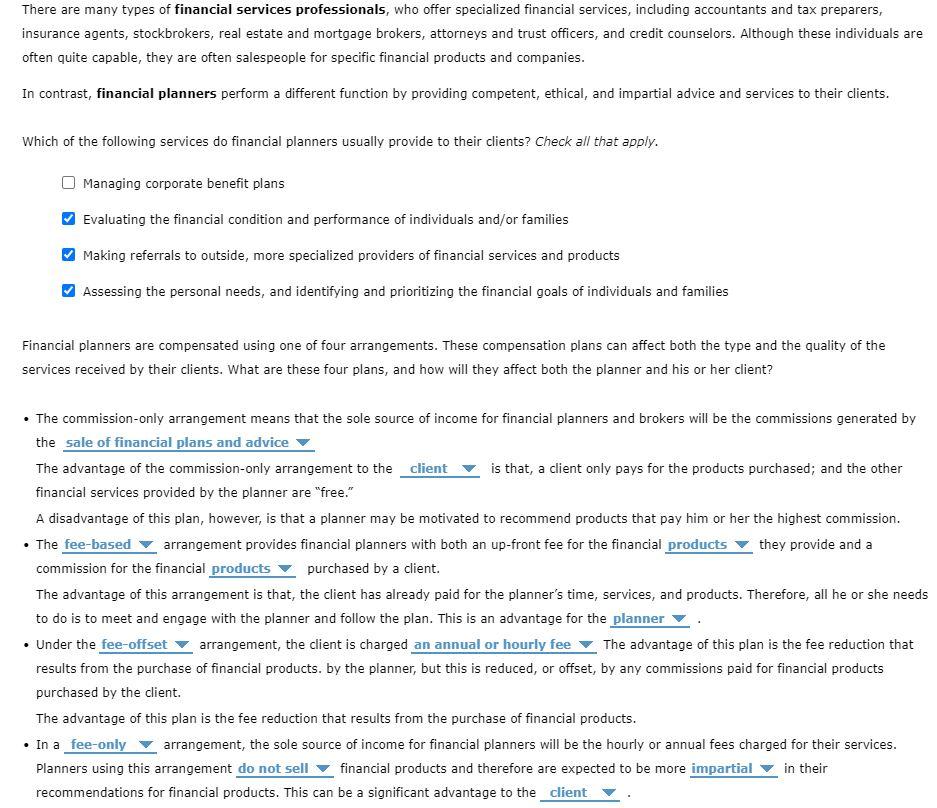Need help with this practice assignment. Can I have my work checked? Thanks 
There are many types of financial services professionals, who offer specialized financial services, including accountants and tax preparers, insurance agents, stockbrokers, real estate and mortgage brokers, attorneys and trust officers, and credit counselors. Although these individuals are often quite capable, they are often salespeople for specific financial products and companies. In contrast, financial planners perform a different function by providing competent, ethical, and impartial advice and services to their clients. Which of the following services do financial planners usually provide to their clients? Check all that apply. Managing corporate benefit plans Evaluating the financial condition and performance of individuals and/or families Making referrals to outside, more specialized providers of financial services and products Assessing the personal needs, and identifying and prioritizing the financial goals of individuals and families Financial planners are compensated using one of four arrangements. These compensation plans can affect both the type and the quality of the services received by their clients. What are these four plans, and how will they affect both the planner and his or her client? The commission-only arrangement means that the sole source of income for financial planners and brokers will be the commissions generated by the sale of financial plans and advice The advantage of the commission-only arrangement to the client is that, a client only pays for the products purchased; and the other financial services provided by the planner are "free." A disadvantage of this plan, however, is that a planner may be motivated to recommend products that pay him or her the highest commission. The fee-based arrangement provides financial planners with both an up-front fee for the financial products they provide and a commission for the financial products purchased by a client The advantage of this arrangement is that, the client has already paid for the planner's time, services, and products. Therefore, all he or she needs to do is to meet and engage with the planner and follow the plan. This is an advantage for the planner . Under the fee-offset arrangement, the client is charged an annual or hourly fee The advantage of this plan is the fee reduction that results from the purchase of financial products. by the planner, but this is reduced, or offset, by any commissions paid for financial products purchased by the client. The advantage of this plan is the fee reduction that results from the purchase of financial products. In a fee-only arrangement, the sole source of income for financial planners will be the hourly or annual fees charged for their services. Planners using this arrangement do not sell financial products and therefore are expected to be more impartial in their recommendations for financial products. This can be a significant advantage to the client







